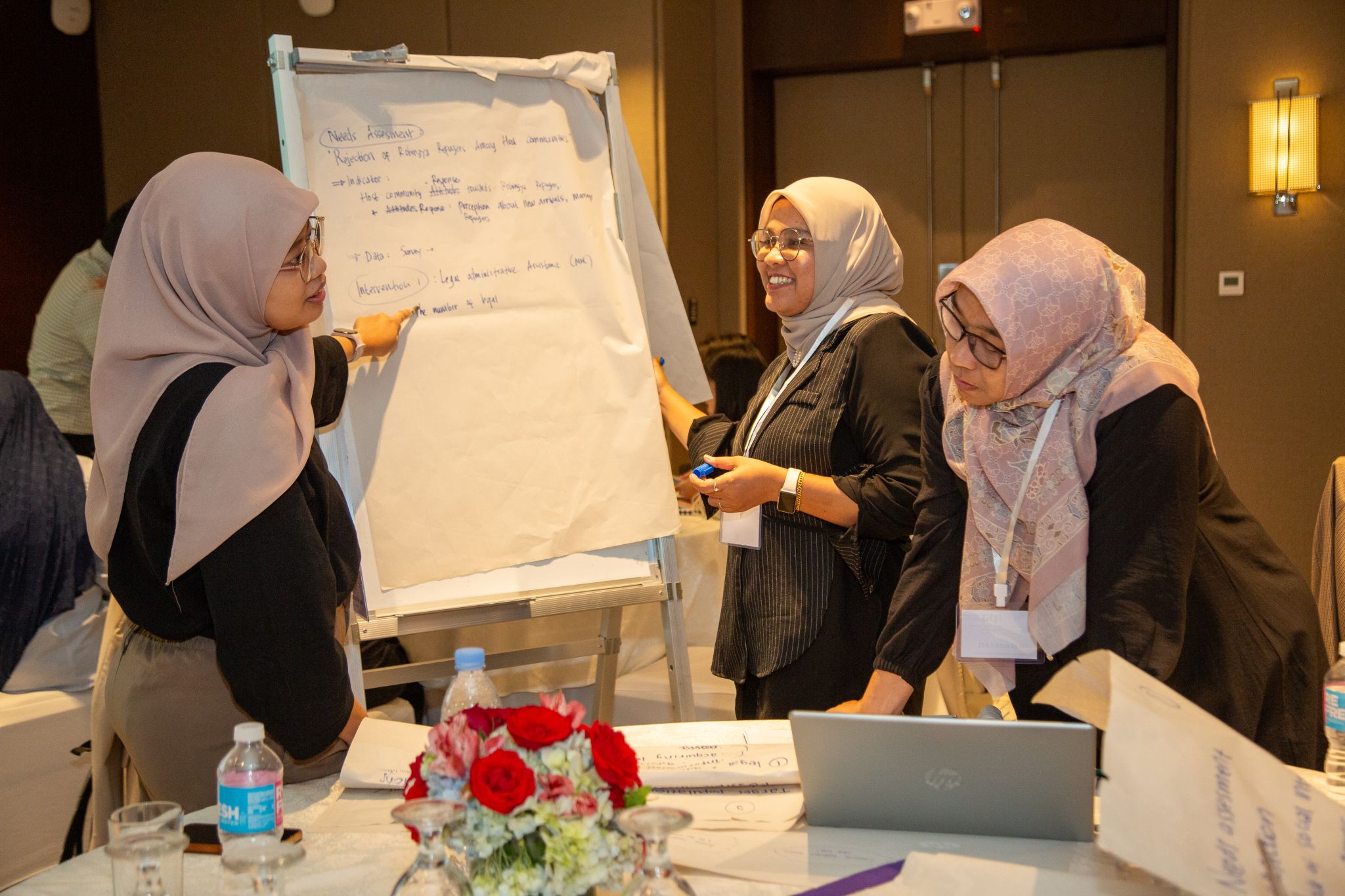Driving Innovation amidst Crisis: The Humanitarian Action and Displacement Response Research Incubator in Asia

Displacement in the Asia-Pacific Region
The Asia-Pacific region faces alarming levels of increased displacement, with over 15.7 million internally displaced persons (IDPs), stateless people, and returnees. This is primarily driven by conflict—such as armed violence in Pakistan, the 2021 coup in Myanmar, ongoing persecution of the Rohingya, and violent extremism in the Philippines. Additionally, climate-related disasters further worsened humanitarian needs, displacing over 1.2 million people across East Asia and the Pacific, with the Philippines among the hardest hit.
These intersecting crises underscore the urgent need to identify effective programs that meet the needs of displaced populations. Although there is growing evidence supporting promising strategies—such as cash transfers, entrepreneurship training, and mental health support—the overall evidence base remains limited. As the scale and complexity of violence- and disaster-driven crises in Asia continue to rise, rigorous evaluations of programs become more critical. In particular, significant questions remain in areas such as preventing sexual and gender-based violence and improving shelter, social cohesion, and economic integration.
The Research Incubator
To help address this evidence gap, the Displaced Livelihoods Initiative and Humanitarian Protection Initiative generate rigorous evidence on programs that improve livelihoods for displaced populations and host communities while also mitigating harm in conflict-affected communities. As a part of this endeavor, IPA and J-PAL recently held a research incubator, hosted by IPA Philippines in Manila. This is the fifth event in a global series that brings together humanitarian and displacement actors to design evaluations of their programs. After four days of refining their early-stage research ideas, participants were either matched with a research team or continued project development with IPA and J-PAL.
Ten organizations from across Asia participated in the Humanitarian Action and Displacement Response Research Incubator to explore how impact evaluations can inform more effective, evidence-based humanitarian and displacement-response programming. Participants developed research ideas addressing critical issues, including deradicalization, support for victims of technology-facilitated gender-based violence (TFGBV), and life skills-based education for refugee populations.
One of the most urgent themes to emerge was the continuing conflict in Myanmar that has displaced millions, particularly Rohingya communities facing protracted persecution and statelessness. Participants explored crisis response and health interventions for IDPs, the protection of female Rohingya refugees, and humanitarian programming in Cox’s Bazar. In parallel, participants working across several countries—including the Philippines—developed research questions around how legal services could help prevent violent extremism and improve refugee rights and social well-being. Legal support can be critical for displaced and crisis-affected populations who often face systemic barriers to justice, lack documentation, and are vulnerable to exploitation. These questions reflect a growing interest among practitioners to evaluate both long-standing interventions and novel innovations.
The workshop sessions provided participants with a practical foundation in impact evaluation design, with leading academics offering valuable insights on conflict and crisis contexts. Nico Ravanilla (University of California, San Diego) guided participants through the core principles of rigorous impact evaluations, offering practical strategies for measuring impact in fragile and conflict-affected settings. Meanwhile, Fatima Zahra (University of Tennessee, Knoxville) emphasized the importance of grounding research in the local context and how close collaboration with communities is essential for designing ethical and responsive studies that reflect real-world dynamics.
During the discussions following their presentations, Nico and Fatima also brought valuable, personalized guidance to teams as they worked through their study design with a new lens.
Additional technical sessions from IPA and J-PAL staff deepened participants’ understanding of how impact evaluations can be used to improve their program design, evaluation, and advocacy work. Beyond these lectures, the participants enhanced the incubator’s unique collaborative environment, exchanging ideas, learning from one another’s experiences, and building connections across diverse contexts.
Looking Ahead
Through the incubator, IPA Philippines strengthened existing partnerships and formed new relationships with humanitarian and displacement actors. The event highlighted a growing interest in evidence-informed practice across the region. Building on this momentum, IPA Philippines is now supporting several participants, facilitating connections with researchers to explore potential evaluations that address pressing challenges related to protection, displacement, and climate resilience, particularly in conflict-affected areas of the country.
For more information on how to partner with IPA Philippines to explore evaluating solutions to humanitarian and displacement issues, contact Fides Bernardo, Policy and Project Development Associate, at fbernardo@poverty-action.org. For information on the Displaced Livelihoods Initiative or Humanitarian Protection Initiative, contact displacement@poverty-action.org or humanitarian@poverty-action.org.












